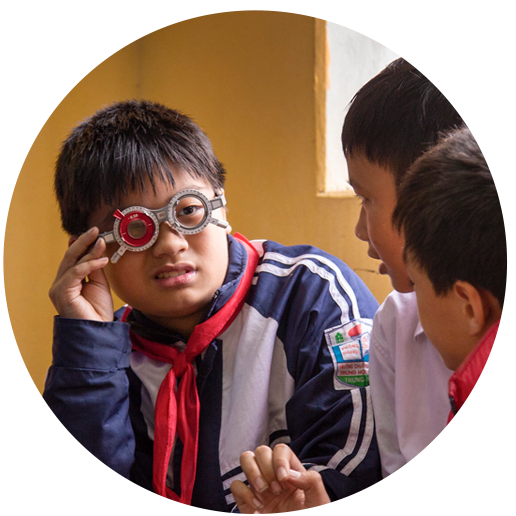Join a powerful, unprecedented alliance for better eye health for all.
Join IAPB
Eyecare tips for children are mostly same as for adults.
As children grow, it is important to take care of their eyes by having healthy eating habits and lifestyle. Eye issues in these years can significantly impact the vision and quality of well-being of the child. Children who are starting school are also majorly dependent on their vision to read and learn.
Any undetected vision problems can significantly impact their overall behaviour at school as well as academic achievements.
It is important to nourish children’s body and mind with healthy inputs. Cutting down on junk food reduces the risk of childhood obesity and associated health issues. Eating healthy foods promotes overall eye and body health.
Research is pointing to an alarming statistic: almost 50% of the world’s population will be short-sighted (referred to as myopia) by the year 2050. We have already started to see more and more children requiring eyeglasses. To reduce the risk of children having to wear eye glasses and also reducing the rate of increase in myopic eye power, playing 1-2 hours outdoor under natural sunlight has proven to be beneficial. So let kids go and play outdoors!
Excessive gadget use and close work have also shown to increase the risk for eye power increase. So, it is equally important to cut down on screen time as much as possible and raise awareness regarding good visual hygiene among children.
Due to the changes in lifestyle and increase in near work among children, it is equally important for children to also have routine eye examinations scheduled.
Banner: “Edina Mboje learns her Sight Will be Restored”, Joe Raffanti, Seva Foundation